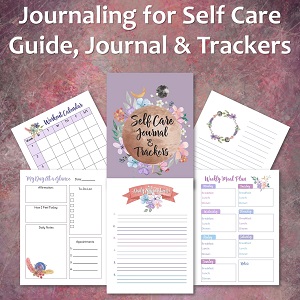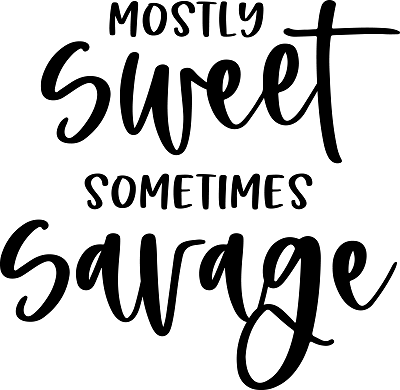 Under the influence on the mind of anger, you will make the greatest speech you will ever regret. You will act out in ways that make you look like you are having a toddler’s temper tantrum. Worst of all, you might break, throw or even hit things. Or people.
Under the influence on the mind of anger, you will make the greatest speech you will ever regret. You will act out in ways that make you look like you are having a toddler’s temper tantrum. Worst of all, you might break, throw or even hit things. Or people.
Anger can make you feel powerful and in control, when in fact the opposite is true. Anger damages relationships with friends, family and colleagues.
You may say or do things you will later regret, but sometimes can’t take back because the damage has already been done.
If you are worried that your anger controls you rather than the other way around, it is time to learn anger management skills. Let’s look first at assessing where you are in terms of your temper:
Do You Have a Temper?
Your starting point in relation to anger management is to first admit whether or not you have a temper.
The problem many people have with anger is recognizing it in the first place. This many sound strange, but we all show anger in different ways – some less obvious than others. You don’t need to scream, shout or throw things to have an anger problem.
Once you admit whether or not you have a temper, you can develop strategies to get your anger under control and lead a happier life.
We have all sorts of words for anger, such as:
- Stress
- Disappointment
- Frustration
- Irritation
- Annoyance
What they really all add up to is that you have an expectation of what you WANT your life to be like, and what it IS actually like. The greater the disconnect, the greater the anger.
The anger can also be magnified by a perception that someone is “doing something to you” – either accidentally or on purpose/deliberately. This sense of being wronged can push the anger out of all proportion.
Some process anger through “flying off the handle” at the least little thing. These people are clearly candidates for anger management because they are constantly making a mountain out of a molehill.
However, those who let their anger burn slowly, until it becomes like a pressure cooker ready to blow, can often do more damage than someone who merely rants and raves regularly to blow off steam.
This is because we rarely choose our moments to be angry. One minute we are fine and the next, someone pushes a button and BOOM. Therefore, anger management is a key strategy to master if you are tired of dealing with the consequences of your anger.
So what exactly is anger management? Let’s look at this in the next section.
What is Anger Management?
Anger management is a way of dealing with any anger experienced, in a healthy rather than destructive way. Once you have admitted you have an anger issue, it is time to take steps to deal with it. It is not about blaming others, or trying to suppress your anger to the point where you become ill. It is about expressing anger in a positive way that will be honest and productive.
The first thing to learn when it comes to managing anger is that while it is a natural emotion that affects us all, we have a choice about what we do with the anger we feel. Do we really have to act out the moment we feel anger? Or can we sit back and process the feeling?
That is, determine what is angering us, why, and whether anything constructive can be done about the issue to relieve the anger. If nothing can be done, should we dwell on it, or just let it pass by like a cloud floating in the sky?
The latter may seem impossible if you constantly feel angry, but it can be done. Think about it. We experience a wide range of feelings throughout the day, such as hunger, thirst, heat, cold. There are sensible strategies for dealing with each of these: eating, drinking, turning on the AC, putting on a sweater.
We don’t get angry with our body for betraying us. We don’t dwell on our hunger or thirst for hours on end, feeling upset every time we think about it. We don’t hold a grudge for years. It is just one of many feelings that come and go in the course of a day.
It is our choice, therefore, to focus on something that makes us angry, do something about it, or let it go. If we find ourselves gritting our teeth over something that happened ages ago at work or years ago with a parent or other loved one, we are still following the feeling rather than letting it go.
Anger management can help you determine the best strategy for dealing with both past and present anger, but we have to be honest and admit we have an anger issue in the first place.
Anger management is all about taking ownership of ALL our own feelings, including anger. No one is doing anything to us. They are not “making us feel” a particular way. The feeling is within us. Once you understand the reason you are feeling anger, you are often a long way toward dealing with it productively.
Anger management can teach you techniques which can nip anger in the bud before it ever starts. Effective anger management techniques can also stop you from getting angry as often, or if you do get angry, from staying angry for very long. If you are interested in living a happier, healthier life, it’s time to learn some of the best strategies for taming your temper.
Strategies for Taming Your Temper
Discovering the anger management strategies that will work best for you personally is a process of learning and self-assessment. There is no one-size-fits-all approach. An anger management journal can help you keep track of all you learn and free you from the crippling grip of anger.
Parts of your self-assessment and reflection can be painful. Feelings and issues might arise that you have suppressed and/or do not feel ready to deal with. If this happens, note the issue or feeling but don’t let it run away with you or paralyze you.
Remember, YOU are in control of your life and emotions. Once you feel empowered in this way, it will be a great deal easier to manage all of your emotions, including anger. Here are some of the most effective strategies for anger management.
Understanding Anger
Understand that anger is not a condition, it is a process. It’s usually a symptom that your life is unbalanced. For example, if you don’t get enough sleep, skip meals, spend most of your time working, don’t exercise, and do not allot quality time to yourself, what should be only minor irritations all start to seem bigger than they are – leading to angry outbursts. You can’t run on an empty fuel tank and expect to be at your best.
Better Self-Care
Therefore, your first anger management strategy is better self-care, including:
- Scheduling a regular bedtime and sticking to it
- Eating three healthy meals a day
- Setting a reasonable work timetable
- Taking regular breaks
- Doing something healthy with those breaks, such as taking a walk, enjoying a healthy snack, etc.
- Allowing yourself time off at the weekends
- Making an appointment with yourself to exercise every day
Spotting Your Stressors
Anger management can also mean you spotting the situations or things that stress you most and learning how to handle them more skillfully. Here are a few examples:
- Don’t let people overwhelm you as soon as you get into the office or arrive home. Have a 10- to 15-minute routine to settle yourself down. Then you will be more attentive to others and less likely to feel irritated by them.
- Try to limit interruptions when you are working on something that requires concentration. Shut off the phone and email, and close the door if you can. If someone pokes their head around the cubicle and asks, “Is this a good time?” say, “Please give me X minutes to finish what I’m doing.” Give yourself a ten-minute cushion to make sure you can finish it and wind down for a minute or two before dealing with that person.
- Don’t try to be a superhero. Make a date with yourself at least once a day for 30 minutes doing something that will rejuvenate your body, mind and spirit. Consider a long soak in a tub, a trip to a spa, a walk in nature, one chapter of your favorite book, 30 minutes of online gaming, and so on.
- Master time management skills and work smarter, not harder. Less stress means less chance of losing your temper.
- Avoid procrastination – it only causes more stress and makes it more likely your emotions will get out of control.
These are just a few suggestions. Journal about areas of your life where you feel you could take better care of yourself or remove obvious stressors. Try one or two of these strategies over the next week or so and journal about what worked well.
Underlying Issues
Anger issues often point to other issues which need to be dealt with in order to achieve full physical and mental health. These can include:
- Stress
- Depression
- Anxiety
- Substance abuse, including caffeine, tobacco, alcohol, drugs (over the counter, prescription or illicit)
- Impulse control – out of control spending, eating, gambling, sex, drinking, and so on
- Fear of abandonment
- Fear of getting too close to others emotionally
- Lack of self-esteem
- Poor coping skills – thinking that anger is the only way to get what you want
Poor coping skills also makes you believe the myth that there is nothing you can do to control anger, when in fact, you have choices.
Making (Smarter) Choices
You may not feel as though you have a choice when you shout at someone or throw things, but the truth is that anger management is all about making smarter choices in relation to how you deal with emotions. Using the example of a person interrupting you at work causing you irritation, you can:
- Ignore it
- Count to ten and then deal with it
- Communicate your feelings in a respectful way, such as the request to come back and a more convenient time
- Change the situation so it is less stressful – deal with it then and there but reward yourself with a break. Stretch, exercise, go for a walk, and then pick up where you left off before the interruption.
- Or, my favorite – cuss the fucking asshole out in your mind, if nothing else
Different situations will lend themselves to some strategies more than others. People might think it weird if you just say nothing and walk away. But just being aware of your range of choices can help you cope with each bout of anger as it arises so it does not get blown out of all proportion, and you don’t seethe about a little issue for weeks afterwards.
Feel the Feeling, But Don’t Let it Take Control
Set some distance between yourself and the feeling. For example, instead of saying, “I’m angry,” change it to, “I’m feeling anger right now.” The first statement makes you identify more closely with the anger. The second statement gives you some distance and perspective. That anger is just a feeling, and it is only temporary – “right now.”
Similarly, “I’m an angry person,” or “People tell me I’m an angry person,” associates you too closely with the emotion. You can distance yourself with statements such as, “I need to learn to work on the best ways to deal with anger if it arises,” or “When I feel anger, I do not always behave well towards others. This is something I would like to work on in order to have happier relationships.”
Getting to Know Your Own Mind
Another effective anger management strategy is to get to know your own mind. What thought patterns might be contributing to your anger issue? “Mind chatter” and different assumptions can often trigger bouts of anger without your even realizing it. Examples include:
- Worrying or obsessing about things that are not within your control
- Being negative all the time
- Criticizing ourselves over the least little thing
- Imagining the worst case scenario as “real” no matter what the situation
- Holding yourself to too high a standard and then beating yourself up for being a “failure”
- Taking on too many responsibilities to the point where you are not caring for yourself
You might also find your anger is triggered by other feelings that arise, such as:
- Nervousness
- Shyness
- Embarrassment
- Vulnerability
- Feeling ill at ease in new situations
And so on. These feelings of being “less than” can trigger a “bull in a china shop” response that will just reinforce your thought-pattern that you are not good enough, bad with people, and so on.
Banish Childhood Chatter
Labels from childhood can also contribute to this. “You are so _____!” your mother or other relative tells you. Fill in the blanks:
- Angry
- Stupid
- Selfish
And so on.
Or, you might have been thrust into a role, such as:
- The man of the house
- A good daughter
- The caregiver for younger children,
- The one who will become a doctor, lawyer, etc. when they grow up
And more, even though you were only young at the time.
False Empowerment
Even the most well-meaning parent can falsely empower their child by making the child feel they are responsible for the adult. This can also happen if they praise the child to the skies all the time so they do not have a realistic assessment of how talented they really are.
They might think they are a good artist and therefore apply to art school, when they are really terrible, or think they will have a career as a singer when they can’t hit a note.
Only by getting to know yourself better through cutting through this childhood chatter and seeing patterns, can you empower yourself to lead a better life thanks to your new anger management skills.
Relentless Role-Playing
We don’t choose the roles listed above; they are often chosen for us by parents or by society as a whole. For example, most people are expected to get married, settle down, have 2.4 kids and a lovely house in the suburbs with a white picket fence.
Some people go along with this role even though they secretly long for a completely different life. They might start to feel trapped, which will only make them even more angry and unhappy.
Relentless role-playing at home or work can lead to anger, resentment, a feeling of being a fraud stuck in a (fake) life that isn’t our own, and so on. Often the only way people think they can break free is to act out or do something so drastic that their life implodes.
They might quit their job, have an affair, or even run away from home as if they were a small child. In the worst cases, they might even commit suicide due to self-anger and the longing to escape from it all.
Most people have enough sense to know that death is a rather final way of ending their endless role-playing, but it can be tough to deal with family members who make you want to scream every time you deal with them.
Many people long for “perfect” family holidays together (good luck with that), only to end up with the dinner table as a battlefield and so many hurt feelings that they might not speak to each other for months or even years afterwards.
The reason our family members can be so good at pushing our buttons is because THEY put them there in the first place. Therefore, it might not come as a surprise to find that a lot of schools are now offering courses and counseling for anger management for children.
Family and Feelings
Even if you are not under pressure to fulfill a particular role or meet everyone’s expectations, you might have grown up in a family in which expressing any feelings was strongly discouraged, especially anger. You might feel it impossible to compromise or admit you were wrong about something because in a competitive family, this could be a fate worse than death.
Growing up around angry people is more likely to create the perception that lashing out is the best coping strategy for dealing with anger. Your family environment might also instill a sense that you always have to be the strong, tough, reliable one who can never show doubt or weakness.
Is Your Anger Really Related to the Present Situation?
Once of the common sayings in counseling is, “If it’s hysterical, it’s historical.” In other words, the person is not responding to a situation that has just happened. The situation has triggered a memory or deep-seated emotion which causes them to react out of all proportion to what has just happened.
Journaling about your anger and particular situations in which you felt completely out of control can often give you a clue that there is something else going on deep down which needs to be investigated.
Now that you are aware of the ways to get to your own mind, and you have some effective strategies for dealing with your anger in a proactive way, let’s look at a few other productive ways to manage anger.
Other Effective Ways to Manage Your Anger
In addition to tracking your own anger and trying to deal with it in a healthy way, there are several other methods of managing anger and stress so your emotions will not control you.
- Journaling – This is one of the best ways to get to know your own mind and master your anger.
- Laugh It Off – If you can laugh about it, it won’t seem so serious a thing to get upset about.
- Meditate – This ancient healing art helps you manage your own mind and improve concentration.
- Practice Long Deep Breathing – If we get tense, we start to breathe in short gasps. Steady your breathing consciously and see what a difference it can make to your feelings so anger won’t run away with you.
- Practice Relaxation Techniques – Meditation, breathing, yoga, biofeedback, and other techniques can all help you relax and slow your anger.
- Exercise – A workout will give you more energy and relieve stress, and less stress will usually mean less anger.
- Get Counseling – There is no shame in admitting that you could use help with some things in your life. See what is covered by your insurance.
- Seek Support – There are many online and in-person support groups to help with anger management. You can also talk out your issues with the help of a friend or family member who knows you well and the situations you have been dealing with.
- Re-Frame Your Thoughts from Negative to Positive – A change of perspective can turn around most situations completely. Instead of beating yourself up over what you don’t do well, focus on what you are good at. The more you practice, the easier this will become.
- Use Aromatherapy for Stress Relief – There are a number of essential oils such as lavender and geranium that can help relieve stress when inhaled, or used as part of a massage. Lemon is always cheering and energizing and makes the environment smell clean and fresh.
- Cultivate an Attitude of Gratitude – Spend a few moments before you get up in the morning and before you fall asleep at night thinking of all the things you are grateful for you in your life. Write them down in your journal if you wish, or put them on a piece of paper to remind you if things get tough.
- Learn to Forgive – Forgiving feels good; a lot better than the tense knot of anger.
- Learn to Let Go – The more baggage you carry, the harder it is to open your arm to embrace others, and the harder it is to reach out for the things you want most in life.
- Do Right, Rather Than BE Right – Some people are so intent on being right, they will do anything to win. Follow up your good intentions with helpful actions and see what a positive, not destructive, difference this can make in your life.
Final Thoughts
Anger can have devastating effects on your personal life, career and health unless you learn how to deal with it constructively. If you struggle with anger management, use what you’ve learned in this guide and other strategies you find helpful in order to control your anger and not let it control you.
Use your journal to keep you on track. Educate yourself and get support as needed to tame your temper and live your best life – starting today.




